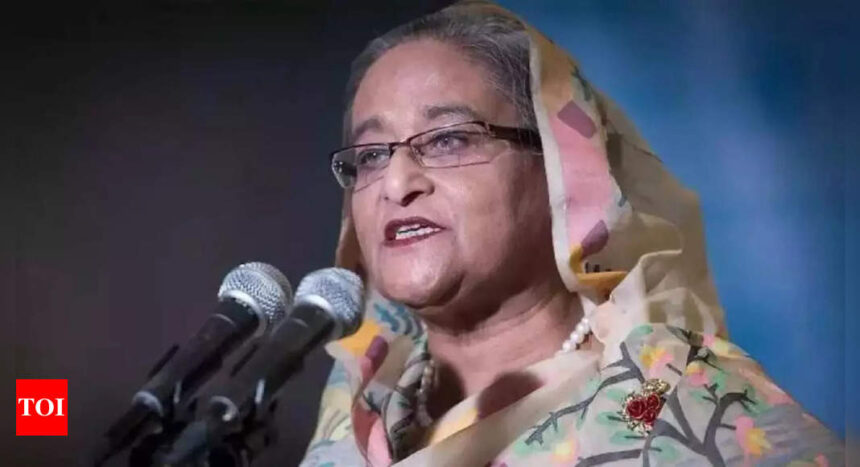Bangladesh Seeks Extradition of Former Prime Minister Sheikh Hasina from India
On Monday, Bangladesh issued a formal diplomatic note to India, requesting the extradition of its former Prime Minister, Sheikh Hasina. The communication was confirmed by foreign adviser Touhid Hossain, who stated that the Bangladeshi government aims to bring Hasina back to face judicial proceedings.
Home affairs adviser Lt Gen (retd) Jahangir Alam Chowdhury noted that there exists a prisoner exchange agreement between Bangladesh and India, under which the extradition will be conducted.
This move follows an announcement from last month by Bangladesh’s interim head, Muhammad Yunus, declaring that his government would pursue Hasina’s return to prosecute her for alleged involvement in mass killings during recent student protests. Hasina had fled to India on August 5 after widespread demonstrations against her administration.
Yunus, celebrating his administration’s first 100 days in office, emphasized accountability, stating, "We will seek the return of the fallen autocrat Sheikh Hasina from India." He also mentioned discussions with Karim Khan, the chief prosecutor of the International Criminal Court, regarding the matter.
Plans for Judicial Action Against Hasina
The interim government led by Yunus intends to utilize the extradition treaty established between Bangladesh and India, aimed at bringing Hasina back to stand trial for charges related to the violent protests that occurred in July and August. New chief prosecutor of Bangladesh’s International Crimes Tribunal (ICT), Md Tajul Islam, indicated that they will seek an arrest warrant against Hasina through the ICT.
Hasina faces a total of 51 legal cases, which include 42 charges of murder. The extradition process is regulated by the treaty signed in 2013 and modified in 2016, which specifies that extradition may be denied if the requested offense is of a political nature. However, the treaty stipulates that certain serious crimes, like murder, do not fall under this political exemption. An extradition may also be denied if the charges are perceived to lack good faith or are not in the interest of justice, as reported by BSS.
This situation marks a significant chapter in Bangladesh’s political landscape, as the current government seeks to confront past actions and establish accountability.










